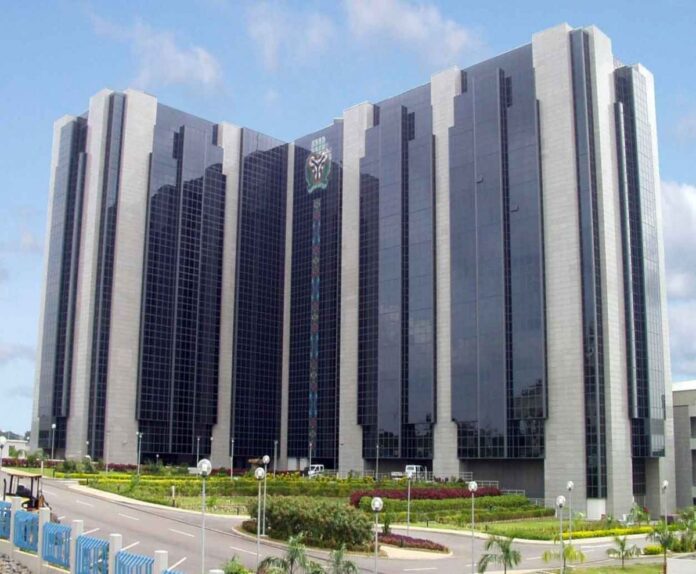The Central Bank of Nigeria (CBN) has returned Bureaux De Change (BDCs) to the foreign exchange market, with new guidelines on their operations.
In a circular to BDCs signed by CBN Director, Trade and Exchange Department, O.S Nnaji, titled: “Operational Mechanism for Bureau De Change Operations in Nigeria”, said the guidelines were to improve the efficiency of the Nigerian Foreign Exchange Market.
In July 2021, the CBN had stopped dollar sales to BDCs, accusing the operators of carrying out illicit transactions. The apex bank also stoped issuing new licenses for BDCs and directed weekly dollar sales to commercial banks.
But the commercial banks failed to deliver on the responsibilities given to them, as many of the lenders were not selling dollar allocations to their customers in need of the forex.
The naira on Friday exchanged to N810/$ at the parallel market, and and closed at the Investors and Exporters (I&E) window at N739.52/$. The local currency has lost over 30 per cent of its value in the last one year.
However, in the new circular, the CBN said part of the new rule is that the spread on buying and selling by BDC Operators shall be within an allowable limit of 2.5 per cent to +2.5 per cent of the Nigerian Foreign Exchange market window weighted average rate of the previous day.
“Mandatory rendition by BDC Operators of the statutory periodic reports (daily, weekly, monthly, quarterly and yearly) on the Financial Institution Forex Rendition System (FIFX) which has been upgraded to meet individual Operator’s requirements,” it said.
The apex bank also listed mandatory rendition by BDC Operators of the statutory periodic reports (daily, weekly, monthly, quarterly and yearly) on the Financial Institution Forex Rendition System (FIFX) which has been upgraded to meet individual Operator’s requirements.
The new rule also directed BDC Operators to note that with effect from the date of this circular, non-rendition of returns would attract sanctions which may include withdrawal of operating license.
“Where Operators do not have any transaction within the period, they are expected to render nil returns.Please be guided accordingly and ensure compliance,” it said.
As part of the suggestions to strengthen the naira, stakeholders had called on the CBN to bring back BDCs to the forex market to strengthen the naira.
Managing Director, Economic Associates, Dr. Ayo Teriba, suggested that aside the banks, other players in the market, including bureaux de change operators should have equal access to the market.
“There should be freedom of entry and exit for even Fintechs to play in the market, and every dollar earned will add to the market liquidity,” Teriba advised.
“Continuing, he said that lack of transparency in the market is not fair to the BDCs. The government will do well to restore regulatory integrity including ensuring that any CBN staff with BDC license is identified and sanctioned because of conflict of interest.
Former Executive Director, Keystone Bank Limited, Richard Obire said the weakness of the naira over time has been caused by two broad issues linked to the quality of leadership and governance.
He said Nigeria’s heavy and skewed outward-oriented consumption of goods and services as seen in decades of long substantial bills for food and energy imports remains a hindrance to naira stability.
Also, the massive corruption-driven capital outflows which in turn severely damages Nigeria’s capacity to produce at scale that will enable the country to fully engage its large population to create widespread prosperity works against the naira.
On ways to strengthen the naira, he advised that in the short-term, there is need to find non-market damaging ways to increase the supply of hard currencies and reducing the demand for same.
“Our crude oil export quota is currently 1.74 million barrels per day. In July, we produced 1.081m bpd. Let us get our production up to the full quota. At current market price of about $87 per barrel, this should see us earning an additional about $1.7 billion per month. Nigerian Diaspora Remittances rather than declining should be growing as the population of our Diasporans are growing. Half year January to June 2023, remittances totaled $952 million compared to $1.21 billion for the same period in 2022,” he said.
According to Obire, right pricing for remittances and frictionless processes for their use by recipients should see the volumes growing again.
He said that insecurity hampering food production needs to be tackled with a sense of urgency and effectiveness.
“Priority should be given through deploying pragmatic incentive programs to drive up the volume of food products for domestic consumption and industrial use to reduce our food import bill. All government consumption expenditures requiring the use of hard currencies should be suspended indefinitely, starting now,” he advised.
Continuing, Obire said the Turn Around Maintenance (TAM) status of refineries in Port Harcourt and Warri should be appraised immediately. Effort should be focused on the one which can begin producing quicker. The other one should be made to be up and running, not long after. This should reduce required forex for fuel imports.
“In the long term, only a strong economy will produce a stable currency. To achieve this will require addressing the fundamental structural defects in our political-economy hampering an accelerated transition from an outward consumption oriented economy into a mainly balanced production driven one,” he said.



